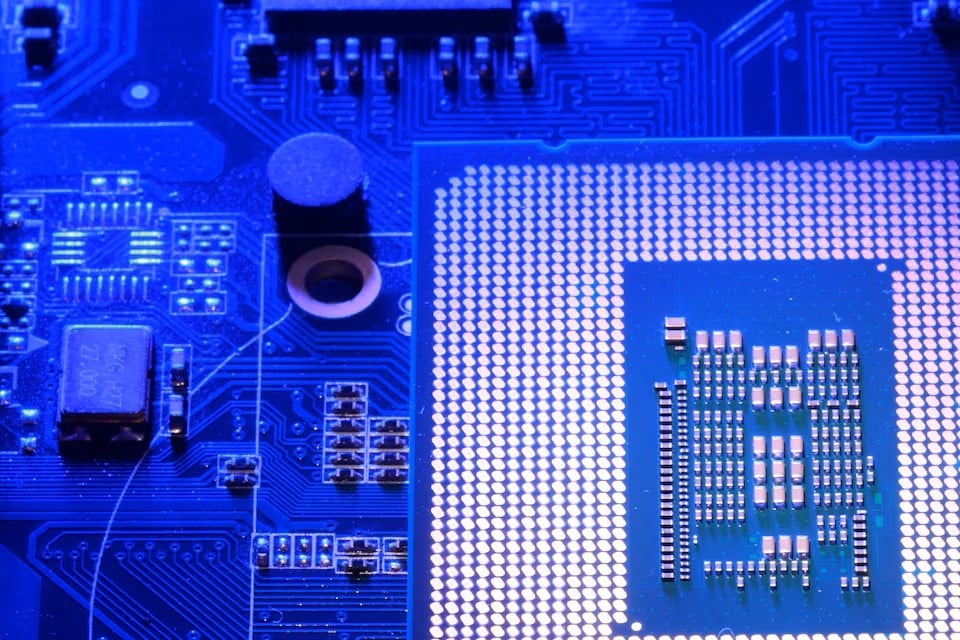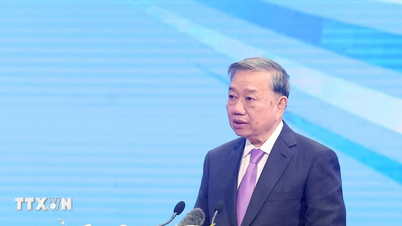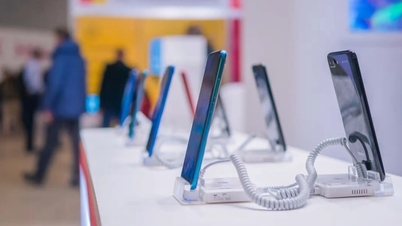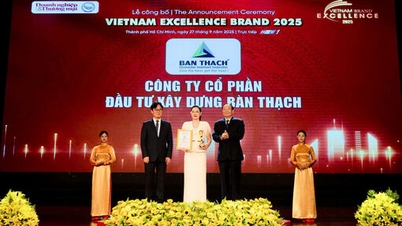 |
The US may impose taxes based on the number of chips in each product. Photo: Reuters . |
Since the "reciprocal tariffs" in late April, US President Donald Trump has threatened to impose a number of measures to limit US companies' dependence on foreign chipmakers.
In the early days of the tariff war, Mr. Trump excluded smartphones, laptops, hard drives, computer processors, and memory chips from the tariff list, a “temporary solution,” according to US Commerce Secretary Howard Lutnick. He announced that “specially targeted tariffs” would soon apply to these products, but that never happened. Over time, the US administration adjusted the tariffs in various forms and levels, replacing the original figure.
Last month, after Apple’s CEO presented Mr. Trump with a medal, the US president announced that he would impose tariffs of about 100% on chips and semiconductors, except for companies that are building factories in the US, even if the facilities have not yet made products or have only committed to building them.
In the following weeks, the US government continued to move forward with a deal to take a 10% stake in Intel, but the 100% tax rate has not appeared as previously announced.
On September 26, WSJ reported that the US government is considering requiring domestic chip production to be equivalent to imported products "and will impose taxes on companies that do not increase production".
On the morning of September 27, Reuters , based on internal sources, revealed the US plan to impose taxes based on the number of chips inside electronic devices manufactured outside this country.
"Under the previously unreported and subject to change plan, the Commerce Department would impose tariffs equal to a percentage of the estimated value of the chip content in the product," Reuters said.
If implemented, the plan would see the Trump administration seek to tax a wide range of consumer products, ranging from toothbrushes to laptops.
The new tariffs could push up consumer prices “at a time when the U.S. is already having an inflation problem that is exceeding the Fed’s target and accelerating,” said Michael Strain, an economist at the American Enterprise Institute. The Federal Reserve’s inflation target is 2%. Even U.S.-made goods could become more expensive because of the new tariffs on key inputs to make them, Strain said.
Questions remain about the list of chip-containing products that will be subject to tariffs, the tariff rates, and whether any countries, products, or companies will be exempt.
According to 9to5mac , with CEO Tim Cook's recent actions, it's likely that Apple will get a favorable deal, if not a complete exemption.
Source: https://znews.vn/tong-thong-my-muon-danh-thue-tren-tung-con-chip-post1588668.html



![[Photo] General Secretary To Lam receives US Ambassador to Vietnam Marc Knapper](https://vphoto.vietnam.vn/thumb/1200x675/vietnam/resource/IMAGE/2025/9/29/c8fd0761aa184da7814aee57d87c49b3)
![[Photo] National Assembly Chairman Tran Thanh Man chairs the 8th Conference of full-time National Assembly deputies](https://vphoto.vietnam.vn/thumb/1200x675/vietnam/resource/IMAGE/2025/9/29/2c21459bc38d44ffaacd679ab9a0477c)
![[Photo] Many streets in Hanoi were flooded due to the effects of storm Bualoi](https://vphoto.vietnam.vn/thumb/1200x675/vietnam/resource/IMAGE/2025/9/29/18b658aa0fa2495c927ade4bbe0096df)
![[Photo] General Secretary To Lam chairs the meeting of the Central Steering Committee on preventing and combating corruption, waste and negativity](https://vphoto.vietnam.vn/thumb/1200x675/vietnam/resource/IMAGE/2025/9/29/fb2a8712315d4213a16322588c57b975)
![[Photo] General Secretary To Lam attends the ceremony to celebrate the 80th anniversary of the post and telecommunications sector and the 66th anniversary of the science and technology sector.](https://vphoto.vietnam.vn/thumb/1200x675/vietnam/resource/IMAGE/2025/9/29/8e86b39b8fe44121a2b14a031f4cef46)

























































































Comment (0)